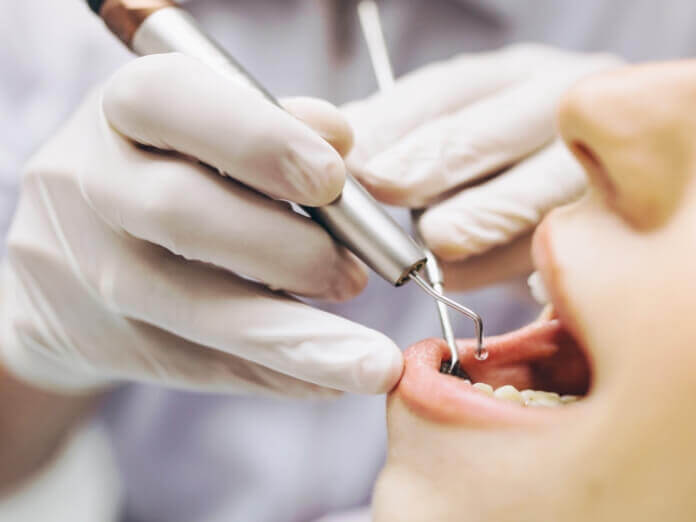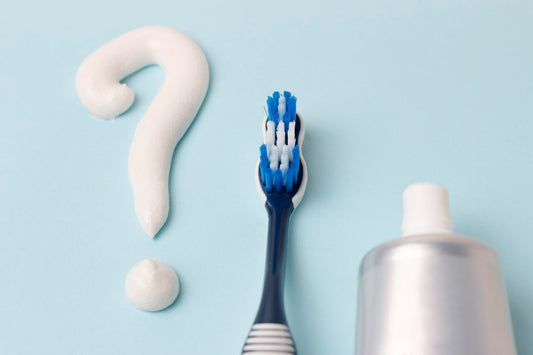The Role of Enzyme Toothpastes in Preventing Dental Caries

The Role of Enzyme Toothpastes in Preventing Dental Caries - Enzim Singapore
In a world where dental health is increasingly recognised as vital to overall well-being, new and innovative methods for enhancing oral hygiene continue to emerge. Among these, enzyme toothpaste is gaining attention for its potential to transform how we prevent dental caries and improve oral hygiene. By leveraging the natural power of enzymes—proteins that accelerate chemical reactions—these advanced toothpastes offer effective solutions for breaking down plaque, neutralising harmful bacteria, and promoting a balanced oral microbiome. With dental issues being a common concern, the significance of enzyme toothpaste in advancing oral health and hygiene is substantial.
This article aims to provide insights into the phenomenon of dental caries, a widespread dental issue, and highlight the crucial role enzyme toothpaste plays in maintaining oral health. It will explore the scientific foundations behind the effectiveness of enzymes like lysozyme and lactoferrin in reducing the occurrence of dental caries. Additionally, we'll examine criteria for selecting the right enzyme toothpaste, taking into account factors such as salivary enzymes and the microbiome. The inclusion of Enzim Freshmint Toothpaste in this discussion will showcase how specific products can cater to diverse oral health needs.
Understanding Dental Caries
What are Dental Caries?
Dental caries, often referred to as tooth decay, arises when bacteria in the mouth produce acids that demineralise tooth structure. This condition emphasises the urgent need for effective dental care strategies. More than just localised issues, dental caries represent a chronic infectious disease caused by cariogenic bacteria like Streptococcus mutans, which thrive on sugars and lead to enamel erosion. Understanding these bacteria's role is essential in devising strategies to prevent tooth decay.
Causes and Risk Factors
The formation of dental caries is closely linked to sugar consumption, which shifts the balance of the oral microbiome towards an acid-producing environment. Factors like insufficient fluoride exposure, poor oral hygiene, and dietary habits significantly increase the risk of caries. Notably, cavities often develop on hard-to-reach surfaces that retain food particles, highlighting the importance of managing dental plaque in caries prevention.
Impact on Oral Hygiene
Dental caries can dramatically affect an individual's quality of life, causing pain and aesthetic concerns that may necessitate urgent dental intervention. Left untreated, caries can lead to severe toothache, infection, and even tooth loss, ultimately impacting overall health and nutrition. The psychological implications of poor dental health, including decreased self-esteem, further stress the importance of effective dental care practices.
How Enzyme Toothpastes Support Dental Hygiene
Introduction to Enzyme Toothpastes
Enzyme toothpaste, including options like Enzim Freshmint Toothpaste, are formulated with proteins that boost biochemical reactions vital for oral health. These products leverage the natural activity of enzymes to enhance immune responses and manage the oral microbiome.
Mechanism of Action
The primary action of enzyme toothpaste involves introducing ingredients like glucose oxidase, which catalyses hydrogen peroxide production. This reaction is crucial for activating the lactoperoxidase system, an essential nonspecific immune response in saliva. This system converts thiocyanate into hypothiocyanite, which effectively combats harmful oral bacteria. Clinical studies have shown that enzyme toothpaste can significantly reduce plaque and gingivitis, particularly in areas that are difficult to clean during regular brushing.
Advantages Over Traditional Toothpastes
Enzyme toothpastes like Enzim Freshmint provide a more potent antibacterial effect compared to standard toothpastes. They alter the oral bacterial composition favorably and have been shown to inhibit bacterial growth effectively, leading to a reduction in plaque formation and gingival inflammation. By enhancing the salivary defence mechanisms, these toothpaste prevent not only dental caries but also promote overall oral hygiene.
Scientific Evidence Supporting Enzyme Toothpaste
Clinical Research Findings
Recent clinical studies have examined the effects of enzyme-containing toothpastes on oral health indicators such as gingival health and plaque reduction. In one study, participants refrained from brushing for several days and utilized various toothpaste slurries, revealing significant improvements in gingivitis prevention with enzyme formulations compared to water rinsing.
Comparison with Traditional Formulations
Laboratory comparisons have demonstrated that enzyme toothpastes, especially those with sodium lauryl sulfate (SLS), exhibit superior bacterial growth inhibition. This reinforces their stronger antimicrobial properties compared to conventional toothpaste.
Results and Implications
Findings emphasise the effectiveness of enzyme toothpaste in controlling plaque and enhancing oral hygiene. They have been particularly beneficial in preventing plaque regrowth in children with high caries risk, suggesting a complementary role in traditional fluoride treatments.
Choosing the Right Enzyme Toothpaste
Key Ingredients to Consider
When selecting an enzyme toothpaste, look for active ingredients that promote dental hygiene. Ingredients like papain and glucanase are effective in stain removal and plaque management. A three-enzyme system, including amyloglucosidase, glucose oxidase, and lactoperoxidase, can further enhance the toothpaste's efficacy.
Recommended Brands
Enzim Freshmint Toothpaste stands out for its formulation that incorporates effective enzymes and promotes oral health. Other notable brands include Zendium™, which contains a robust three-enzyme system and additional proteins for enhanced antimicrobial benefits.
Usage Tips for Optimal Results
For best results, it is recommended to use enzyme toothpaste twice daily, ensuring comprehensive coverage of all tooth surfaces. Consistent use, alongside proper brushing techniques, greatly enhances plaque control and reduces the likelihood of dental caries, particularly in children prone to early childhood caries.
Conclusion
The exploration of enzyme toothpaste’s crucial role in dental hygiene and the fight against dental caries highlights the promising benefits supported by scientific research. These toothpastes harness natural biochemical processes to combat harmful bacteria, minimise plaque accumulation, and support a balanced oral microbiome. By opting for products like Enzim Freshmint Toothpaste, consumers can significantly improve their daily oral care routines, harnessing the protective power of enzymes to foster healthier oral environments. This choice not only enhances dental health but also contributes to overall well-being, emphasising the intrinsic link between oral hygiene and general health.
The clear advantages of enzyme toothpastes over traditional formulations, particularly their superior antibacterial and plaque-reducing abilities, underscore their value in preventing dental caries. As more people recognise the importance of oral health, enzyme toothpaste will undoubtedly play an increasingly central role in effective oral care.



